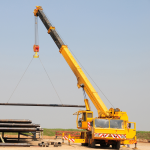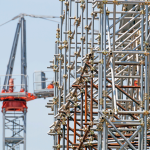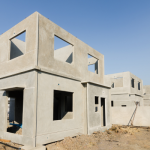Why Is Water Management Important in Construction?
Efficient water management ensures the proper use, storage, and disposal of water on construction sites. It helps in:
- Reducing water wastage
- Preventing waterlogging and soil erosion
- Ensuring compliance with environmental regulations
- Enhancing project sustainability and cost-efficiency
Key Methods of Water Management
Let’s dive into the most effective methods of water management used across modern construction projects:
1. Rainwater Harvesting
Rainwater harvesting systems collect and store rainwater for non-potable uses such as:
- Concrete mixing
- Landscape irrigation
- Dust control
This reduces dependency on municipal water supplies and lowers project costs.
2. Site Drainage Planning
Proper site grading and drainage systems are essential to direct water flow and avoid stagnation. Common drainage techniques include:
- Sloped surfaces
- French drains
- Catch basins and stormwater pits
3. Reuse and Recycling of Water
Recycling wastewater from curing or cleaning processes helps conserve fresh water. It involves using sedimentation tanks and filtration systems to treat and reuse water for construction needs.
4. Smart Water Metering
Digital water meters help monitor water usage in real-time. By identifying leakage and overuse, construction managers can make informed decisions to optimize consumption.
5. Erosion and Sediment Control
To prevent soil erosion and water contamination, methods such as silt fences, sediment traps, and vegetative cover are employed.
Best Practices for Implementing Water Management Methods
✔ Conduct a Water Audit
Before starting any project, assess water needs, availability, and sources to plan accordingly.
✔ Train Site Workers
Educating workers on sustainable water use and wastage reduction plays a vital role in successful implementation.
✔ Use Water-Efficient Equipment
Choose tools and machinery that require minimal water or are designed for recycling and efficient use.
✔ Monitor and Maintain Systems
Regular inspection of drainage, storage, and metering systems helps avoid failures and ensures ongoing efficiency.
Conclusion
Adopting effective water management methods is not just about environmental responsibility—it also brings long-term cost savings and regulatory benefits. As the construction industry moves towards greener and smarter practices, implementing robust methods of water management becomes essential for every project.
For more insights on sustainable construction practices, stay connected with ConstructionTrends.in—your trusted source for the latest updates in the construction industry.








